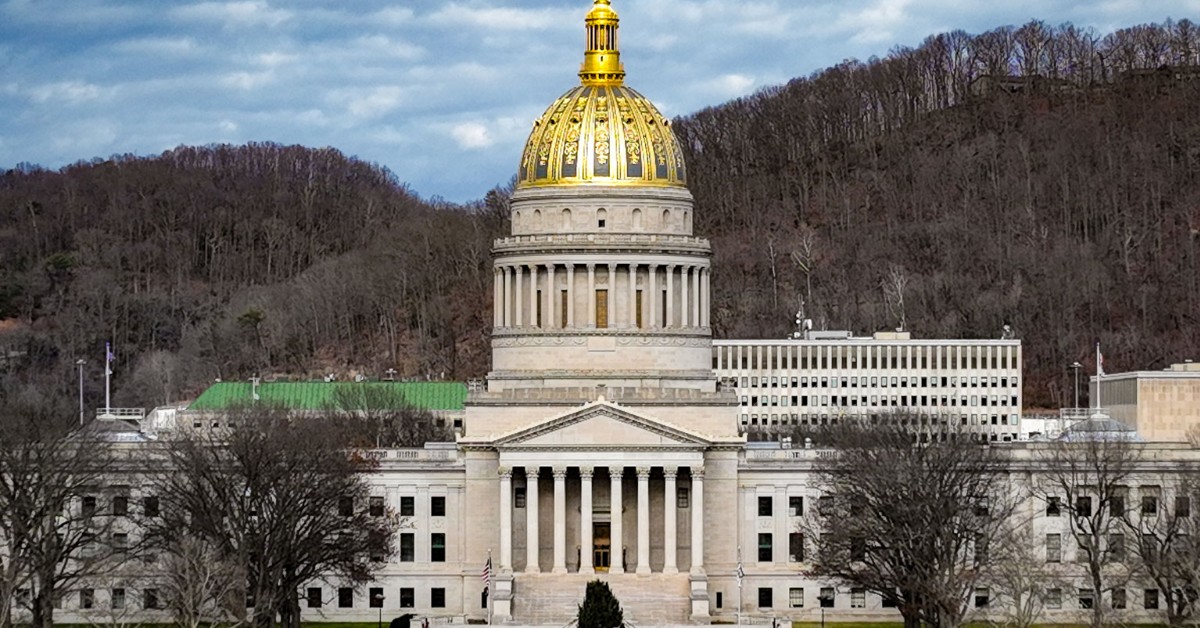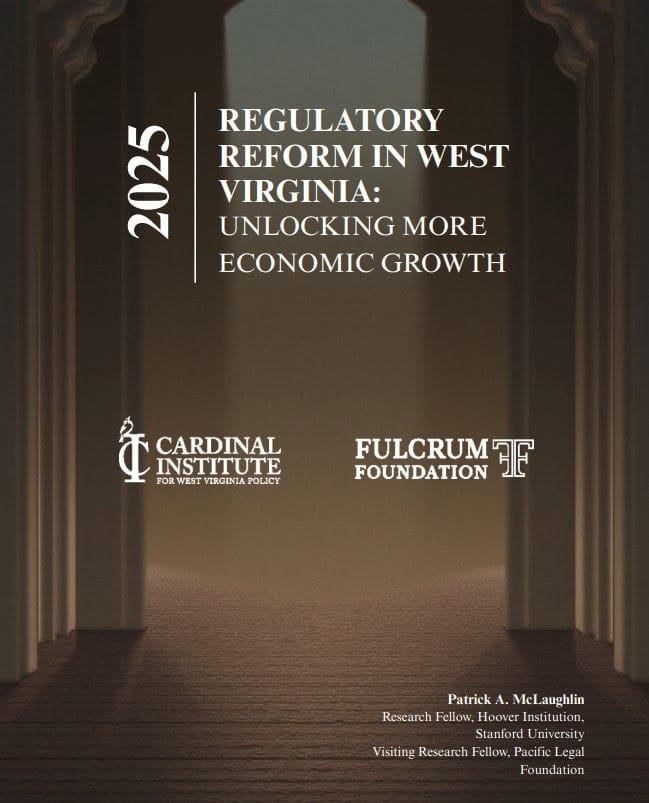
Governor Morrisey’s 2025 State of the State Address: An Analysis
Governor Morrisey’s 2025 State of the State Address: An Analysis
On the evening of Wednesday, February 12, 2025, Gov. Patrick Morrisey delivered his first State of the State address. An annual tradition, the address is largely intended to set the tone for the upcoming legislative session and present the governing agenda for the year. One-half pep rally and one-half agenda-setting, the address gives citizens a look ahead into what a gubernatorial administration values, its solutions to problems, and its vision for the future of the state.
So, what can West Virginians expect based on Gov. Morrisey’s speech? Conservatism. And a lot of it.
Gov. Morrisey gave what is, likely, the most free-market State of the State address in any living West Virginian’s memory. From traditional conservative economic talking points like spending reductions and tax cuts to more esoteric free-market reforms like universal licensing reciprocity and repeal of the certificate-of-need regulatory process, the speech was a veritable cornucopia of supply-side economics and free market thinking.
As Milton Friedman, University of Chicago economist and winner of the 1976 Nobel Memorial Prize in economics, famously stated on the Phil Donohue show in 1979: “So that the record of history is absolutely crystal clear, that there is no alternative way so far discovered of improving the lot of the ordinary people that can hold a candle to the productive activities that are unleashed by the free-enterprise system.”
Gov. Morrisey’s address channeled Friedman’s thinking to an extensive degree. West Virginia has long been governed by a philosophy that, if not completely opposite, certainly cattycornered to the Friedmanite belief that economic prosperity comes not from the marbled halls of bureaucracy, but the tinkerer in the garage, entrepreneur, and risk takers who are willing to bet on themselves and their communities.
Until quite recently, West Virginia’s governing philosophy has been a potpourri of protectionism, “incumbentism” (I’ll explain the term in a bit), central planning, and anti-dynamism wrapped up in a heavy blanket of high taxes and regulation.
To take but one example of what I call “incumbentism,” certificate-of-need (CON) is a regulatory process in which healthcare providers and entrepreneurs must ask the state government for permission to add new technologies or expand services in a community. Potential competitors are allowed to issue a protest to said expansion, and the entrepreneur must prove, through a very lengthy, expensive process, that their services are both necessary (hence certificate of need) and will not adversely affect existing healthcare providers. To say this system benefits incumbents at the expense of competition and innovation would be an understatement. Gov. Morrisey’s speech spent a considerable amount of time, possibly more than any other single policy, detailing why a CON repeal is good policy for West Virginia.
The address also discussed the need to support innovative education solutions like the Hope Scholarship program – an extremely innovative, decentralizing policy. In an infamous 2014 report, an education consulting group noted that West Virginia’s education system was, “ … one of the most highly centralized and impermeable education systems in the country: No other state education system is so highly regulated in code and is constitutionally separate from the executive and legislative branches of government.” The Hope Scholarship is the opposite of such centralization, and Gov. Morrisey noted the importance of protecting school choice policies embodied by the Hope Scholarship.
Gov. Morrisey also discussed what he called West Virginia’s most serious problem: improving the workforce participation rate. From a “dynamic jobs portal” to increasing vo-tech opportunities, solutions were offered, though, admittedly, were light on details.
Workforce participation is, indeed, a very serious problem in West Virginia, so it’s important to tackle the problem with a comprehensive plan – reforming the state’s licensing regime (another example of incumbentism), fixing welfare benefit cliffs, reforming criminal justice laws governing work, and encouraging in-migration are all necessary, though not sufficient, ideas for West Virginia to implement to fix this stubborn problem.
Governor Morrisey also stressed the need to push the boundaries in areas such as cryptocurrency facilities, small modular (nuclear) reactors, and the marriage of data centers with West Virginia’s vast energy resources, all of which sent my technolibertarian heart aflutter.
I will have more to say regarding the budget crunch that West Virginia seems once again to be facing, but, for now, it is important to note that tight budgets are always on the horizon for states with shrinking populations and headwind-filled demographics like West Virginia.
If Gov. Morrisey’s State of the State was any indication of his governing philosophy for the next four years, then it is safe to say that West Virginia very likely will have bright(er) days ahead.
Written by: Garrett Ballengee, President & CEO of the Cardinal Institute for West Virginia Policy








